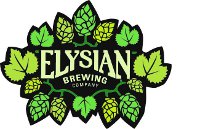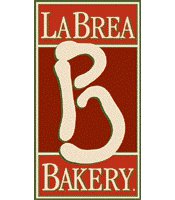Winning in Premium With a Purely Local Strategy
 In January, Anheuser-Busch’s announcement that it is purchasing Seattle-based Elysian Brewing Company triggered the usual hue and cry from the core of the beer world in Seattle. The objectors, though loud, have never really established that they account for a majority of the beer volume sold by any individual craft brewing operation. And we suspect that they do not.
In January, Anheuser-Busch’s announcement that it is purchasing Seattle-based Elysian Brewing Company triggered the usual hue and cry from the core of the beer world in Seattle. The objectors, though loud, have never really established that they account for a majority of the beer volume sold by any individual craft brewing operation. And we suspect that they do not.
It is often assumed by large companies that the decision on whether or not to invest in an emerging premium brand based in one local market (in any category) should hinge on one’s belief in the ability to scale up that local brand’s portfolio through strong national distribution and manufacturing capabilities.
 We call this the La Brea assumption. La Brea Bakery is an L.A.-based artisanal bakery founded in 1989 by Nancy Silverton that grew to legendary status in the 1990s. Noticing the overall strong growth in supermarket artisanal bread sales in many major markets, Swiss executives at Aryzta made a move to acquire La Brea in 2001 and scale it up through its own N.A. distribution network. One of the assets it acquired was La Brea’s innovative parbaked supermarket production method, which shipped 80 percent baked product, not dough or dough mix, to stores for final baking on site. In this strategy, the production method bends to meet the distribution requirements of the parent company and the larger strategy of making it a national brand. Today, La Brea is the top-selling artisanal in-store bakery brand in the U.S., but it is not really the same product that began the brand years ago. It is not baked from scratch daily in your local market. La Brea Bakery has grown through sales to less discriminating customers unable, or unwilling, to routinely pay the very high prices of local, made-from-scratch, artisanal breads from local micro-bakeries. It took artisanal bread to another segment of the consumer population.
We call this the La Brea assumption. La Brea Bakery is an L.A.-based artisanal bakery founded in 1989 by Nancy Silverton that grew to legendary status in the 1990s. Noticing the overall strong growth in supermarket artisanal bread sales in many major markets, Swiss executives at Aryzta made a move to acquire La Brea in 2001 and scale it up through its own N.A. distribution network. One of the assets it acquired was La Brea’s innovative parbaked supermarket production method, which shipped 80 percent baked product, not dough or dough mix, to stores for final baking on site. In this strategy, the production method bends to meet the distribution requirements of the parent company and the larger strategy of making it a national brand. Today, La Brea is the top-selling artisanal in-store bakery brand in the U.S., but it is not really the same product that began the brand years ago. It is not baked from scratch daily in your local market. La Brea Bakery has grown through sales to less discriminating customers unable, or unwilling, to routinely pay the very high prices of local, made-from-scratch, artisanal breads from local micro-bakeries. It took artisanal bread to another segment of the consumer population.
But there is another strategy for achieving scale that does not involve scaling up of manufacturing. It is a strategy in which you create a national presence by scaling up your acquisitions of local companies. This is a strategy we have not seen executed frequently outside the dairy and baking industries, and we don’t understand why.
In categories where the new premium skews artisanal, fussy and local, such as beer, bread and produce, we see virtue in more companies exploring this lesser-utilized strategic option. For one, it is much less likely to require dangerous product reformulations that tend to dilute or kill the unique sensory experience that got the brand going in the first place. And it is one well-suited to winning the market-share battle at the national level by winning locally, market by market.
There are multiple ways to scale premium. We believe that taking the route best suited to maintaining the integrity of a premium brand’s sensory experience (and the brand being built by it) is too important to deploy standard strategies for scaling small businesses.
